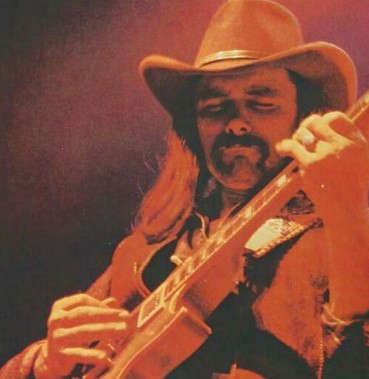
Rick Davies, co-founder and keyboardist of Supertramp, has died at 81 after a battle with multiple myeloma, leaving behind a legacy of timeless music.
Rick Davies, the co-founder, singer, songwriter, and keyboardist of the progressive pop-rock group Supertramp, has died at 81. He passed away on Saturday after a prolonged struggle with multiple myeloma, a type of blood cancer. The band confirmed his death in a statement, noting, “Rick’s music and legacy continue to inspire many and bears testament to the fact that great songs never die, they live on.”
Born Richard Davies in Swindon, England, in 1944, he took up piano early and developed a deep interest in jazz and rhythm and blues. He spent his formative years performing in local bands until a meeting with Dutch entrepreneur Stanley August Miesegaes led to funding for a new musical venture in London in 1969.
That venture evolved into Supertramp, a name drawn from W.H. Davies’ book The Autobiography of a Super-Tramp.
The group struggled at first. Their self-titled debut album in 1970 and its follow-up Indelibly Stamped (1971) failed to gain much attention. But Davies persevered, refining the lineup and sound of the band. The breakthrough arrived with 1974’s Crime of the Century, a record that showcased Davies’ blues-inflected Bloody Well Right alongside Roger Hodgson’s more whimsical Dreamer. Critics praised the album’s polished production and ambitious arrangements, marking Supertramp’s arrival on the international stage.
From there, Supertramp grew into one of the most distinctive acts of the 1970s. Davies and Hodgson’s contrasting styles gave the band a dual identity: Hodgson’s high, almost ethereal vocals were balanced by Davies’ deeper, grounded voice. While Hodgson penned melodic hits like Give a Little Bit and The Logical Song, Davies’ edgier tracks such as Goodbye Stranger and Ain’t Nobody But Me provided balance. The two were not only co-frontmen but foils, their creative tension fueling the band’s success.
The group’s albums in the latter half of the decade—Crisis? What Crisis? (1975), Even in the Quietest Moments… (1977)—built steadily on that reputation. Their tours drew enthusiastic audiences, and critics often remarked on their ability to merge accessible pop hooks with the ambition of progressive rock. In 1979, Supertramp reached its commercial peak with Breakfast in America, a record that became a global phenomenon. Fueled by radio staples like The Logical Song, Take the Long Way Home, and Davies’ Goodbye Stranger, the album sold more than 20 million copies worldwide and won two Grammy Awards.
The success led to extensive touring across North America and Europe, with Supertramp filling arenas and stadiums. Their concerts were noted for meticulous musicianship and a stage show that balanced spectacle with precision. The group became a defining sound of the late 1970s, their music woven into the cultural fabric of the era.
However, by 1983, tensions between Davies and Hodgson came to a head, and Hodgson departed to pursue a solo career. Davies carried on with Supertramp, releasing albums like Brother Where You Bound (1985), which featured David Gilmour of Pink Floyd, and Some Things Never Change (1997). While these later works did not match the commercial highs of the past, they earned respect for maintaining the band’s signature blend of pop and sophistication.
In the years that followed, Davies remained devoted to Supertramp, keeping the band active through tours and live recordings. Even as musical fashions shifted, the group maintained a loyal following, particularly in Europe and Canada, where their albums continued to chart strongly.
Davies’ personal life was marked by resilience. After being diagnosed with multiple myeloma in 2015, Supertramp cancelled a planned tour so he could undergo treatment. Despite the illness, he stayed connected with fans and supporters, maintaining a quiet dignity as he stepped back from performing.
Tributes following his death have highlighted his role not only as the steady anchor of Supertramp but also as a songwriter whose work endures. Tracks like Bloody Well Right and Goodbye Stranger remain staples of classic rock radio, their sharp observations and distinctive melodies as relevant today as when they were first recorded.
Rick Davies is survived by his wife, Sue, who managed Supertramp for many years. His passing marks the close of a chapter in rock history, but the music he helped create will continue to resonate. Supertramp’s catalog, bridging progressive ambition and pop accessibility, stands as a reminder of his artistry and the lasting impact of his vision.
Sources:
- BBC News
- The Guardian
- Rolling Stone
- Billboard
- AllMusic
- Grammy.com
- Supertramp Official Website
Image: By Ueli Frey - DrJazz.ch, CC BY-SA 4.0, https://commons.wikimedia.org/w/index.php?curid=63021869



 New Music Monday: From Indie-Soul Introspection to Stadium Rock Power Ballads
New Music Monday: From Indie-Soul Introspection to Stadium Rock Power Ballads
 Dickey Betts: The Fiery Rise of a Southern Rock Architect
Dickey Betts: The Fiery Rise of a Southern Rock Architect
 Hawksley Workman’s Odd Christmas Songs Are a Homage to Huntsville Roots and Holiday Messiness
Hawksley Workman’s Odd Christmas Songs Are a Homage to Huntsville Roots and Holiday Messiness
 Billy Joel's Historical Anthem "We Didn't Start the Fire" Hit The Charts On This Day
Billy Joel's Historical Anthem "We Didn't Start the Fire" Hit The Charts On This Day












Comments
Add a comment